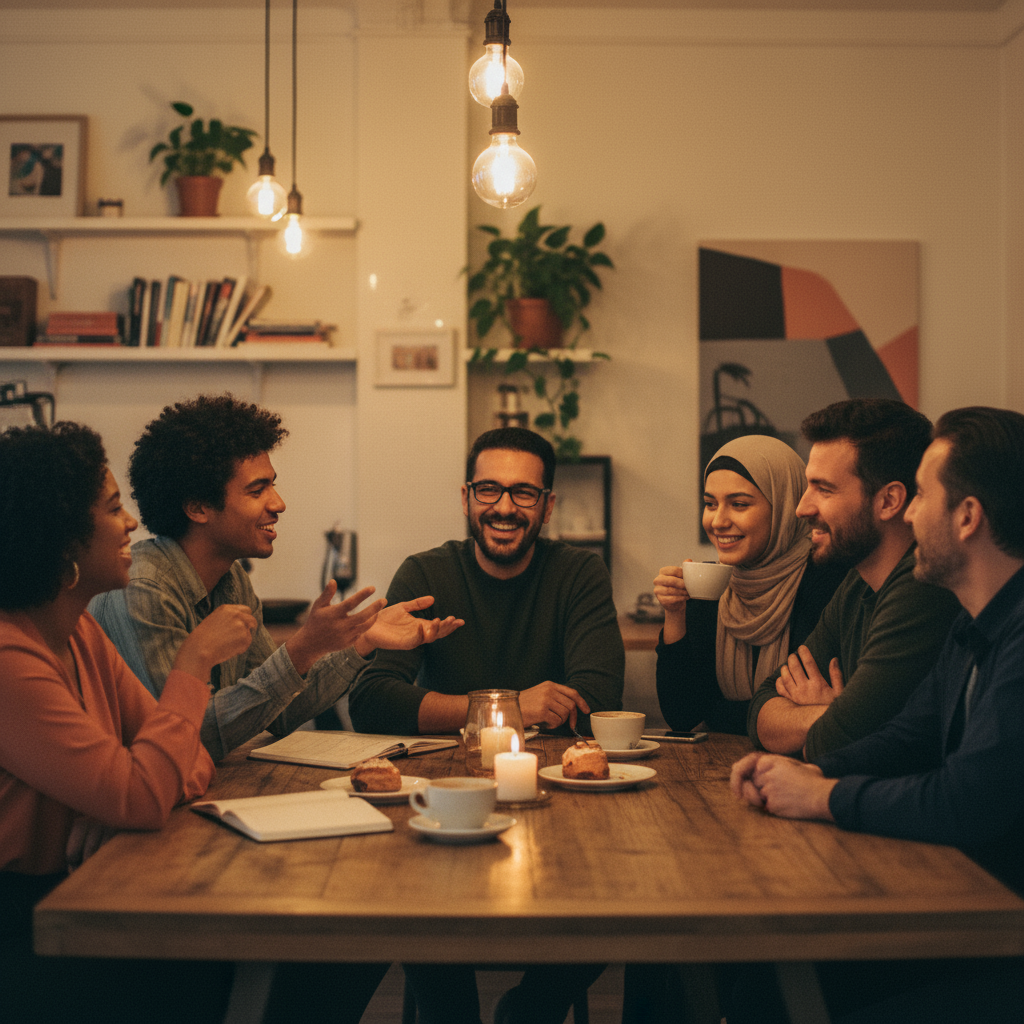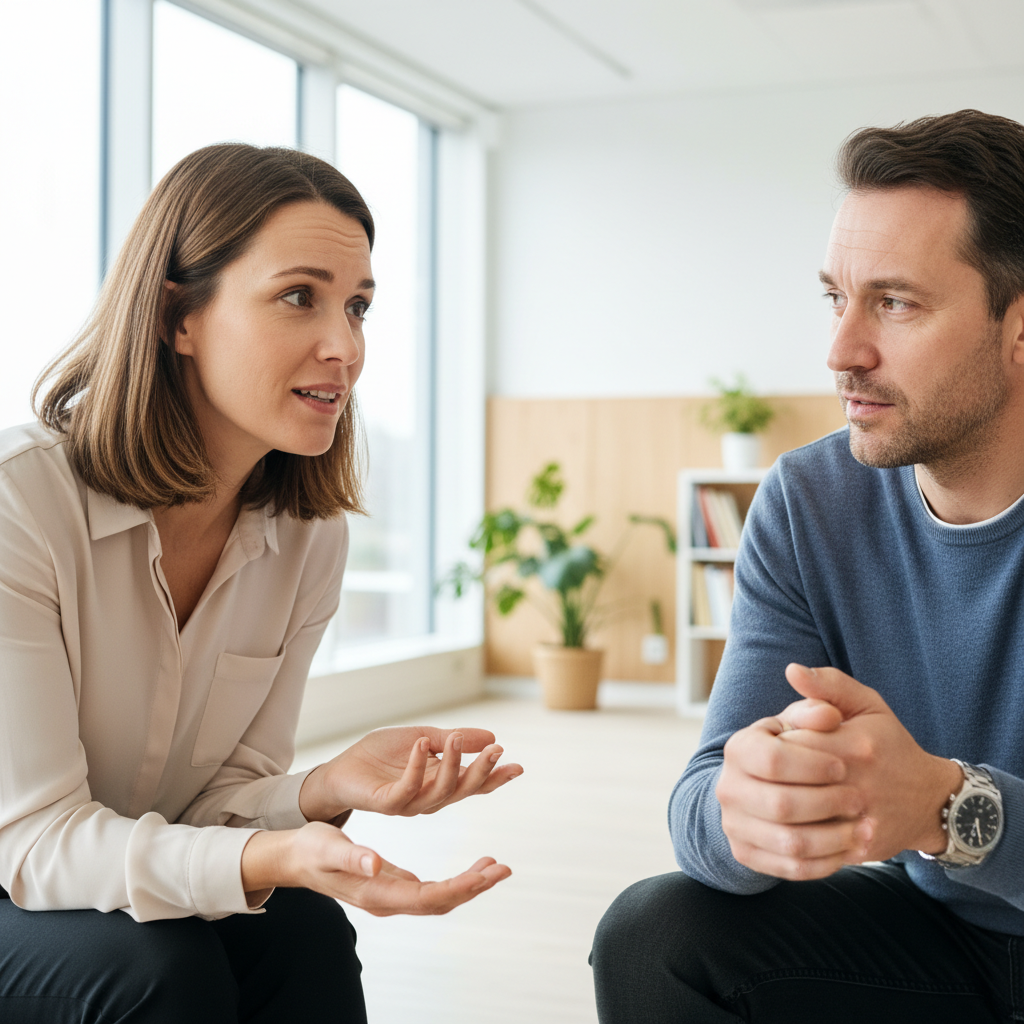
Table of Contents
Introduction
You know that feeling when you’re standing in a group conversation and somehow feel completely invisible? Or when you realize you’ve been talking for five minutes straight and everyone’s eyes have glazed over? We’ve all been there. Social skills aren’t just some mysterious talent that some people are born with—they’re learnable abilities that can completely change how you experience relationships, work, and life in general.
Here’s the thing: we’re living in a world where texting often feels easier than talking, and Zoom calls have replaced coffee meetings. But here’s what research keeps showing us—strong communication skills and emotional intelligence still make or break your success, whether that’s landing your dream job, building lasting friendships, or just feeling confident in your own skin. Developing social skills isn’t just about learning what to say. It’s about becoming the kind of person who really listens, who picks up on what others are feeling, and who knows how to respond in ways that actually matter. Speaking of managing your daily interactions more effectively, improving your time management skills can give you more mental space for meaningful social connections.
Let’s be honest—social challenges are real and they’re tough. Maybe you deal with social anxiety that makes your heart race before group events. Maybe you struggle to read body language or find yourself saying the wrong thing at the worst possible moment. These hurdles can chip away at your confidence and leave you missing out on opportunities that could change everything. But recognizing these patterns? That’s actually the hardest part, and you’re already doing it. Building a foundation with stress reduction techniques can help calm those pre-social jitters, while understanding mental health awareness gives you insight into the emotional roadblocks that might be holding you back.
What makes social interactions really click? Emotional intelligence. It’s that ability to tune into your own emotions (and manage them) while staying aware of what’s happening for the people around you. When you can do this, awkward conversations transform into genuine connections. The techniques covered in resources like how to develop emotional intelligence and how to improve emotional intelligence offer practical ways to level up your social game. And if you want to bring more presence and calm to your interactions, exploring mindfulness meditation benefits can help you show up more authentically in every conversation.
What You’ll Learn in This Guide
This guide is designed to meet you wherever you are in your social skills journey—whether you’re starting from scratch or just want to fine-tune what you’ve got. We’ll break down the essentials, give you practical tools you can use right away, and help you work through the stuff that’s been tripping you up. Here’s what we’ll cover:
- Understanding Social Skills: We’ll start with the basics—what social skills actually are and why they matter so much in your daily life. You’ll get a solid grasp on communication, active listening, empathy, and reading non-verbal cues, giving you the foundation you need to build on.
- Practical Ways to Improve: This is where we get into the actionable stuff—techniques like active listening, finding your social groups, mastering positive body language, and practicing empathy. These are strategies you can start using today to see real changes in how you connect with others.
- Overcoming Challenges: We’ll tackle the big obstacles head-on—social anxiety, confidence issues, and those moments when you completely misread the room. You’ll learn strategies that actually work for long-term improvement.
- When to Seek Professional Help: Sometimes you need backup, and that’s perfectly okay. We’ll help you recognize when working with a counselor or coach could fast-track your progress and support your overall well-being.
Throughout this guide, you’ll also find connections to other life skills that support your social development. Things like how to start journaling can help you reflect on your social experiences, while how to improve communication skills dives deeper into the art of expressing yourself clearly and effectively.
Relationships are where social skills really shine, so we’ll also point you toward expert relationship advice for couples for insights on building deeper, more meaningful connections. And since we’re all battling digital distractions these days, learning how to reduce screen time can help you be more present in your real-world interactions.
Your mental health plays a huge role in social confidence, so we’ve woven in resources like mental health benefits of journaling and practical stress management techniques to help you build the emotional resilience that makes great social skills possible.
Ready to discover what’s possible when you feel genuinely confident in social situations? Let’s dive in and start building the skills that will open up richer relationships, better opportunities, and a version of yourself you’ll actually be excited to be.

Here’s something most people don’t realize: social skills aren’t just something you’re born with or without. They’re learnable. Seriously. If you’ve ever felt awkward in conversations or wondered why some people seem to effortlessly connect with others, you’re not alone. The good news? These abilities can absolutely be developed with the right approach and some practice. Think of social skills as your toolkit for navigating relationships—whether that’s chatting with a coworker, making new friends, or even just feeling more comfortable at parties. When you strengthen these skills, something amazing happens: your confidence grows, you become more emotionally aware, and those connections you make? They become so much more meaningful.
Understanding Social Skills and Their Key Components
So what exactly are social skills? They’re basically your ability to interact and communicate with people in ways that actually work. Sounds simple, right? But there’s more to it than just talking. We’re talking about reading the room, picking up on those subtle signals people send (you know, the ones that aren’t said out loud), and knowing how to respond in ways that build bridges instead of walls. The building blocks include how you speak, how you listen, how well you tune into others’ emotions, and whether you can catch those non-verbal cues that make up so much of human communication. Get these pieces working together, and you’ve got yourself a recipe for better relationships across the board. Enhancing communication skills isn’t just about speaking clearly—it’s about making sure your message actually lands the way you intended.
Now here’s where it gets interesting. Social skills and emotional intelligence? They’re basically best friends. When you can recognize what someone else is feeling and respond with genuine empathy, you’re not just being nice—you’re building real trust. And those non-verbal cues we mentioned? They’re huge. A raised eyebrow, crossed arms, the way someone’s voice changes—these tell you things that words never will. The people who excel socially have learned to read these signals and adjust their approach accordingly. It’s like having a social GPS that helps you navigate different personalities and situations.
Key Aspects of Social Skills
Want to know what really makes a difference in social interactions? Focus on these game-changers:
- Effective Communication: This isn’t just about what you say—it’s about how you say it. Your tone, your timing, even your word choice matters. Practice speaking clearly and matching your style to the situation. A casual chat calls for different energy than a work presentation.
- Active Listening: Here’s a secret: most people aren’t really listening. They’re just waiting for their turn to talk. Be different. Give people your full attention, ask follow-up questions, and show you’re engaged. You’ll be amazed how much this changes your conversations.
- Empathy: This is your superpower for connecting with others. When you can step into someone else’s shoes and truly understand their feelings, relationships get deeper. Plus, people feel heard and valued—and that’s something everyone craves.
- Interpreting Non-Verbal Cues: Body language speaks volumes. Learn to read facial expressions, posture, and tone of voice. These clues help you understand what’s really going on beneath the surface and respond appropriately.
Think of these skills as puzzle pieces. They work best when they’re all connected and supporting each other. Master one, and it makes the others easier. Get them all working together? That’s when you start seeing real changes in how people respond to you and how comfortable you feel in social situations.
Practical Strategies to Enhance Your Social Skills
Ready to actually put this into practice? Good. Because knowing about social skills and actually improving them are two very different things. The secret is getting out there and trying—even when it feels uncomfortable at first. Join a book club, volunteer somewhere, or just make it a point to have real conversations with people you meet. Every interaction is practice. And here’s something worth trying: really focus on listening in your next few conversations. This guide on improving listening skills breaks down exactly how to become the kind of person others love talking to.
Let’s be honest—social anxiety and awkwardness are real challenges. Maybe you struggle to read social cues, or you freeze up in group settings. That’s okay. Start small. Practice with people you’re comfortable with first, then gradually expand your comfort zone. Watch how socially confident people interact—what do they do that works? Don’t be afraid to ask trusted friends for feedback either. Sometimes an outside perspective shows us blind spots we never knew existed.
Techniques to Practice for Better Social Interactions
Want to see real improvement? Try these proven approaches:
- Engaging in Active Listening: Put your phone down. Make eye contact. Don’t interrupt. When someone finishes talking, reflect back what you heard before jumping to your response. This simple shift will transform your conversations.
- Joining Social Groups or Clubs: Find your tribe. Whether it’s a hiking group, a cooking class, or a professional meetup, being around people with shared interests makes socializing feel natural instead of forced. You already have something to talk about.
- Using Positive Body Language: Smile like you mean it. Keep your posture open. Make appropriate eye contact. These small changes send a message that you’re approachable and engaged—and people pick up on that energy.
- Practicing Empathy in Conversations: Ask yourself: what might this person be feeling right now? Listen for emotions, not just facts. Respond with kindness and curiosity. When people feel understood, they open up—and that’s where real connections happen.

Here’s the thing about social skills—they’re basically your toolkit for connecting with people. We’re talking communication, really listening to others, showing empathy, and picking up on those subtle signals people send without saying a word. And here’s what I love about this: you weren’t born with a social skills manual. None of us were. These are things you can actually get better at, which means there’s hope for all of us awkward humans out there.
When you start working on how you interact with people, it changes everything. Seriously. You’ll notice it in your friendships, at work, even in those random conversations with strangers at coffee shops. The secret? It’s not about becoming some smooth-talking social butterfly overnight. It’s about making small improvements—listening without planning what you’ll say next, matching your body language to your words, showing genuine interest in what others are sharing. These little shifts add up to something bigger: real confidence that people can feel.
Ready to start? Focus on actually listening when people talk (harder than it sounds, trust me). Find groups or clubs where you can practice in a low-pressure environment—book clubs, hiking groups, whatever matches your interests. Work on your body language and practice putting yourself in other people’s shoes. And if you want to dig deeper, check out our guide on how to improve communication skills for some targeted advice. Oh, and here’s a modern twist—learning how to reduce screen time can help you be more present during real conversations. If social anxiety is holding you back, understanding mental health awareness might give you some helpful strategies. And for those closer relationships in your life, our relationship advice for couples can help you apply these skills where they matter most.
Look, getting better at connecting with people is a marathon, not a sprint. You’ll have great conversations and awkward moments—that’s just part of being human. But with some patience and the right approach, you can turn social interactions from something you dread into experiences you actually enjoy. Every person you meet is a chance to practice these skills. So be curious, be kind to yourself when things don’t go perfectly, and remember that authentic connection is what we’re all looking for anyway.
Frequently Asked Questions
-
What are social skills?
- Social skills are abilities that help people interact effectively with others.
-
How can I start improving my social skills?
- Start by practicing listening, joining social activities, and observing others to learn effective behaviors.
-
Can social skills be learned at any age?
- Yes, social skills can be developed throughout life with consistent effort and practice.
-
When should I seek help for social skill problems?
- If social anxiety or other difficulties significantly impact your daily life, consider seeking professional support for guidance and treatment.
